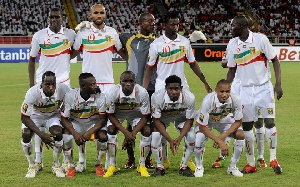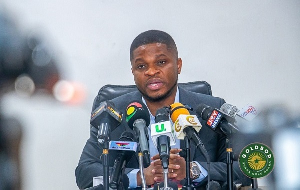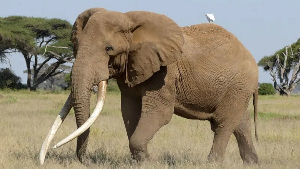Staunch Nkrumaist Prof Agyeman Badu Akosa has described the erstwhile National Liberation Movement (NLM) as the bedrock of tribal politics in Ghana.
The NLM was formed three years before the Gold Coast gained independence from colonial Britain.
It was spearheaded by Bafuor Osei Akoto who liaised with some disgruntled Ashanti Farmers Union members who were at the time, members of the governing Convention People’s Party (C.P.P). They included Osei Asibbey Mensah, Opanin Tawiah Kusi Ampofo and six others.
The Movement’s aim, according to Prof Akosa, was to champion federalism as well as maintain the cultural heritage of the Asante Nation.
Its opposition to the Nkrumah government was sparked by the CPP’s failure to fulfill a campaign promise to increase the price of cocoa – the backbone of the economy – upon assumption of office.
The NLM, according to Prof Akosa, who delivered the 47th J.B. Danquah memorial lecture on Monday February 24, 2014, under the aegis of the Ghana Academy of Arts and Sciences, had the support of some elite members of the United Gold Coast Convention (U.G.C.C) – the party from which Ghana’s first Prime Minister and later first President Dr Kwame Nkrumah seceded to form the C.P.P.
According to Prof Akosa, besides supporting the NLM and its politico-tribal activities, elites of the U.G.C.C also supported the activities of other tribal political groups such as Ga Shifimo Kpee and Transvolta Togoland.
“Of all these groups, the NLM was the most tribal and vicious”, he argued, adding that the Movement was the “bedrock of tribal politics” in Ghana.
The NLM, at the time, led by Prof Kofi Abrefa Busia, later joined forces with other politico-tribal groups including the Northern People's Party led by Chief S.D. Dombo, the Togoland Congress, the Muslim Association Party, the Aborigines Right Protection Society, the Ghana Congress Party and the Anlo Youth Organisation to form the main opposition United Party (U.P.) with the sole aim of opposing the Nkrumah government. The U.P. was the forebear of the current main opposition New Patriotic Party (N.P.P).
Politics of Tuesday, 25 February 2014
Source: XYZ
NLM was “bedrock of tribal politics” in Ghana – Akosa
Entertainment












